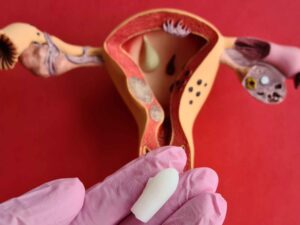Understanding Age-Related Memory Changes: Tips for Maintaining Cognitive Health
The Natural Journey of Aging and Memory
As the years pass, changes in memory and cognition are expected. Mild forgetfulness or needing extra time to process information is often a normal part of aging. However, when memory lapses disrupt daily life, they could signify something more concerning, such as mild cognitive impairment (MCI) or dementia. Knowing the difference between typical memory changes and signs of cognitive decline is critical for maintaining cognitive health and overall well-being.
Recognizing Memory Changes with Age
Normal aging may include occasionally misplacing items, forgetting names momentarily, or needing reminders for appointments. These lapses typically do not interfere significantly with independence or daily responsibilities.
When to Seek Medical Advice
While some forgetfulness is benign, certain symptoms warrant closer attention:
- Frequently asking the same questions.
- Getting lost in familiar environments.
- Struggling with basic tasks, such as following recipes.
- Difficulty understanding time or recognizing familiar faces.
These issues go beyond the scope of normal aging and may require a medical evaluation to rule out underlying cognitive conditions.
Tips for Supporting Cognitive Health
A proactive approach to brain health can improve memory and cognitive performance. Here are practical strategies to keep your mind sharp:
1. Engage in Lifelong Learning
Learning new skills, such as a language, instrument, or creative craft, exercises the brain and enhances neuroplasticity. These stimulating activities keep cognitive functions robust and resilient.
2. Stick to Routines
Daily routines simplify tasks and strengthen memory through repetition. Establishing habits reduces the mental effort required for organization and recall.
3. Use Organizational Tools
Leverage calendars, to-do lists, and reminder apps to stay on top of responsibilities. Writing things down consolidates information, making it easier to remember.
4. Designate Places for Essentials
Prevent losing items like keys, phones, or wallets by always placing them in designated spots. This reduces frustration and boosts efficiency.
5. Stay Active and Social
Physical activity improves blood flow to the brain, while social interactions stimulate mental engagement. Activities like group fitness classes, dancing, or volunteering are excellent ways to combine movement with connection.
6. Prioritize a Healthy Lifestyle
A balanced diet rich in fruits, vegetables, and omega-3 fatty acids, regular exercise, and proper sleep all contribute to better brain health. Managing chronic conditions like high blood pressure is equally vital.
7. Address Mental Health
Conditions like depression and anxiety can impair memory and cognitive function. Seeking professional support ensures emotional well-being and sharper mental clarity.
Factors Influencing Cognitive Health
Memory and cognition are influenced by various factors, including:
- Head Injuries: Trauma to the brain can disrupt memory processes.
- Blood Clots or Infections: These can impair brain function and must be treated promptly.
- Medication Side Effects: Certain drugs may hinder memory or focus.
- Vitamin Deficiencies: Low levels of vitamin B12 are often linked to memory issues.
- Sleep Disorders: Poor sleep quality impacts the brain’s ability to retain information.
Addressing these factors can significantly enhance cognitive health and prevent further decline.
Supplements for Cognitive Support
In addition to lifestyle improvements, specific supplements may bolster brain health:
N-Acetyl-L-Carnitine (ALCAR)
This amino acid supports energy production in brain cells, enhancing memory and focus. It is especially beneficial for age-related cognitive changes, symptoms of depression, and neuropathic pain in diabetics.
Citicoline (CDP-Choline)
Citicoline promotes the production of phosphatidylcholine, a crucial component of brain cell membranes. By enhancing neurotransmitter levels, it supports learning, memory, and mental clarity.
Note: Supplements are not a cure for conditions like Alzheimer’s but can be valuable additions to a brain-healthy lifestyle. Always consult a healthcare provider before starting new supplements.
Conclusion: Thriving with Cognitive Health
Aging gracefully includes prioritizing cognitive health and addressing changes proactively. Incorporating brain-stimulating activities, staying organized, and maintaining a healthy lifestyle can preserve mental sharpness. Supplements like N-Acetyl-L-Carnitine and Citicoline provide additional support, offering tools to strengthen memory and focus.
For persistent memory issues or concerns about cognitive decline, early medical intervention is key to identifying underlying causes and ensuring the best possible care. With the right strategies, individuals can support cognitive resilience and enjoy a fulfilling, healthy aging process.
Further Reading and Resources
- Combat Cognitive Decline & Mental Fatigue with BRAINOMAX
- Boost Brain Health & Mental Performance with BRAINOMAX
- BRAINOMAX: Enhance Memory, Focus & Brain Health

Hiba Amjad is a passionate pharmacist and health advocate, bringing expertise in chronic disease support, smart medication use, and natural wellness solutions. Through her writing, she empowers readers with trusted insights on balanced health, safe supplements, and proactive care.








